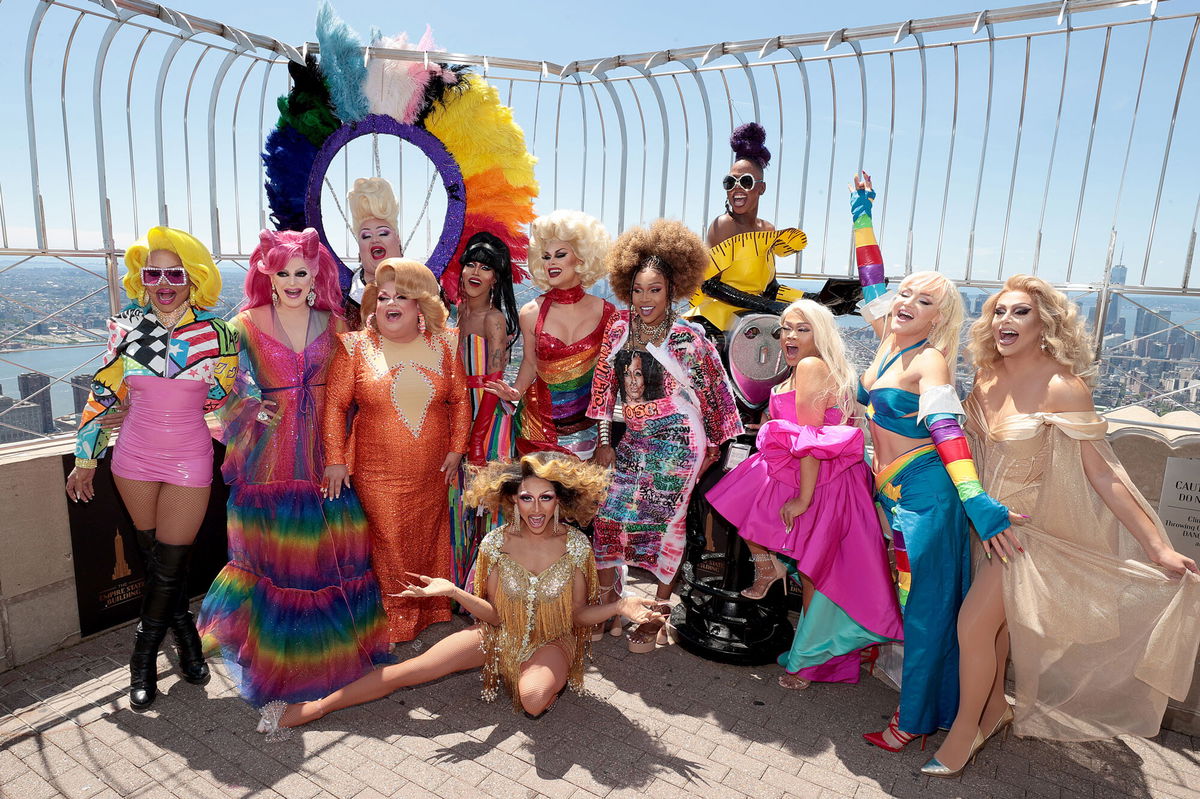Reality TV can make us cringe — and teach us about ourselves, a new book says

Scottie Andrew, CNN
On their faces, “Jersey Shore” and the “Real Housewives” franchise don’t seem like series worthy of sociological study.
Danielle Lindemann knows better than to count them out, though.
Lindemann, a sociologist who’s previously written books on dominatrixes and commuter couples, was raised on reality TV — the fourth season of “The Real World,” set in London, was a particularly formative watch — and teaches a seminar on the genre at Lehigh University, where she’s an associate professor.
“Reality TV has sort of followed me across my life,” Lindemann told CNN ahead of her book’s release. “Especially in the lowest points of my life, I often turn to reality TV. As it turns out, many people do.”
But when it came to research on the cultural impacts of reality TV, the results were scant. So Lindemann took up the subject herself.
Her latest analysis, “True Story: What Reality TV Says About Us,” released Tuesday, asks readers to view their favorite shows through an analytical lens. Series like “Survivor” and “The Bachelor” aren’t just forms of escapist entertainment or windows through which to gawk at strangers in extreme scenarios, she writes — reality series hold up a funhouse mirror to their viewers through which they can learn more about themselves and their culture.
“Reality TV is kind of real life dialed up to 11,” Lindemann said. “But it’s oftentimes by looking at these exaggerated caricatures and tracing their outlines, that we come to a greater understanding of ourselves.”
At one point in the book’s introduction, Lindemann describes reality TV as “elements of our culture in drag form,” referencing the philosopher Judith Butler’s theory that the art of drag elucidates the ways in which we perform gender within narrow confines. The same theory can be applied to the ways we consider race, sexuality, class and ourselves, Lindemann writes.
To better explain these weighty ideas, Lindemann draws from characters and moments familiar to stalwart reality viewers: From “Real Housewives of New York City” star Luann de Lesseps and her evolution from arrogant “countess” to divorced, slightly self-aware cabaret performer, we can glean that “there is no ‘authentic’ self,” but the selves we create partially based on the perceptions of others.
Both the contestants on “The Bachelor” and “RuPaul’s Drag Race,” Lindemann writes, perform femininity in outsized, stereotypical ways. And the subjects of TLC’s “My Strange Addiction” — Lindemann recounts one woman who couldn’t stop eating couch cushions — illustrate that “deviance” (and our response to it) is a social construct.
One of the book’s central arguments, Lindemann said, is “how reality TV teaches us how tenaciously we hold onto our social ideas about these categories and the narrow, rigid ways we define what’s legitimate and healthy.” We may recoil in disgust at a hazardous home on “Hoarders” in the same way we admire the beauty of the women on “The Bachelor,” who dress in bedazzled gowns and perilously high heels to win the heart of a man they’ve just met.
“In some ways, these shows, which are zany in so many ways — with fist-pumping partiers, people who eat couches, child beauty queens — are actually the least zany content on TV,” she told CNN.
If readers take anything away from the book, Lindemann said, she hopes it’s that minimizing the significance of the genre is a mistake — not least of all because one of the last jobs former President Donald Trump held prior to his election was that of reality competition host. Trump, she writes, blurred the lines between politics and reality programming with his election being one of the more extreme examples of reality TV jumping offscreen.
“I don’t think enough people are taking it seriously,” she said. “It’s easy to kind of look at shows like ‘[Here Comes] Honey Boo Boo’ or ‘Jersey Shore’ as a cultural sideshow or frivolous things. But as we saw with the election of Trump — it’s not a cultural sideshow. It’s the main event.”
The-CNN-Wire
™ & © 2022 Cable News Network, Inc., a WarnerMedia Company. All rights reserved.